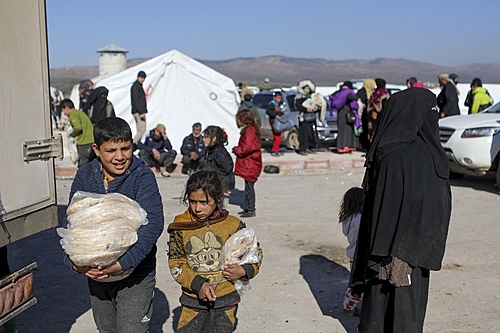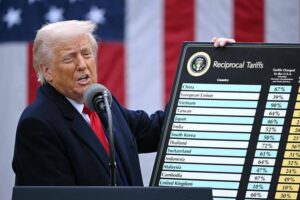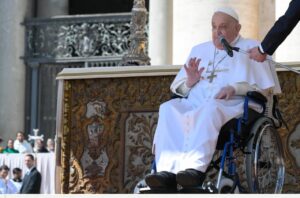
The People’s Assembly, the Syrian Parliament, appealed to the international community for an immediate end to the unilateral sanctions imposed against the country since 2011. According to congressmen, the sanctions make it difficult to send humanitarian aid and equipment to rescue the more than 19,000 victims of the 7.8 magnitude earthquake on the Richter scale that hit the northwest of the country last Monday (6).
The president of the Syrian Arab Red Crescent (SARC), Khaled Hboubati, had already called on Tuesday (7) for the lifting of sanctions to facilitate relief efforts, as the country urgently needs rescue equipment.
In a similar vein, Syria’s ambassador to the UN, Bassam al-Sabbagh, said that sanctions had prevented needed aid, including medicine and heavy equipment from other countries, from reaching Damascus.
The provinces most affected by the tremors were Aleppo, Latakia, Haman and Tartus.
Aleppo, northwest Syria, was one of the provinces most affected by the earthquake / AFP
This Thursday (9), four planes from the United Arab Emirates, Iran and Oman landed at Damascus International Airport with 45 tons of humanitarian aid. The Minister of Health, Hassan Al-Ghobash, met with the regional director of the World Health Organization (WHO), Ahmed Al-Mandhari, to seek alternatives for receiving international support.
Brazil also offered assistance through the Brazilian Cooperation Agency. Hours after the earthquake, still on Monday (6), President Luiz Inácio Lula da Silva (PT) expressed Brazil’s solidarity with the peoples of both countries on a social network.
Chinese Foreign Ministry spokeswoman Mao Ning also echoed the call for sanctions to be lifted. “In this catastrophic situation, the US should renounce the measures imposed against Syria and open the door to offering humanitarian aid to the country,” she declared last Wednesday (8).
China has sent US$4.4 million to support the Syrian government in rebuilding the country.
Mao Ning added, “The US has long been involved in the crisis in Syria, with military strikes and tough sanctions that have caused huge losses and wiped out Syrians’ livelihoods,” the Chinese spokeswoman said.
Since the 2011 war, Washington and Brussels have started to prevent financial transactions for Syrian banks and fine third countries that trade with the government of Bashar Al-Assad.
Also read: A decade of war in Syria: “I didn’t imagine that until today”, says refugee in Brazil
“We accept assistance from the West, and if the United States and the European Union offer help, we also accept it, but they did not offer any, despite the call of the Red Cross,” said the special adviser to the Syrian presidency, Bouzeina Shaaban.
Last Wednesday (8), the Prime Minister of Greece, Kyriakos Mitsotakis, confirmed that the EU will not send humanitarian aid to Syria, only to Turkey, but said that there was “no geopolitical problem”.
In the immediate aftermath of the earthquake, US State Department spokesman Ned Price said it would be “ironic” to support a government that “has abused its people for years”.
In response, Syrian official Bouzeina Shaaban denounced that Western powers support zones occupied by Islamic State terrorists (Daesh) and the Al-Nousra Front, but they are not concerned with the areas where the majority of the Syrian people live.
* With information from Agência SANA, Telesur and CGTN
Editing: Rodrigo Durão Coelho
Source: www.brasildefato.com.br

